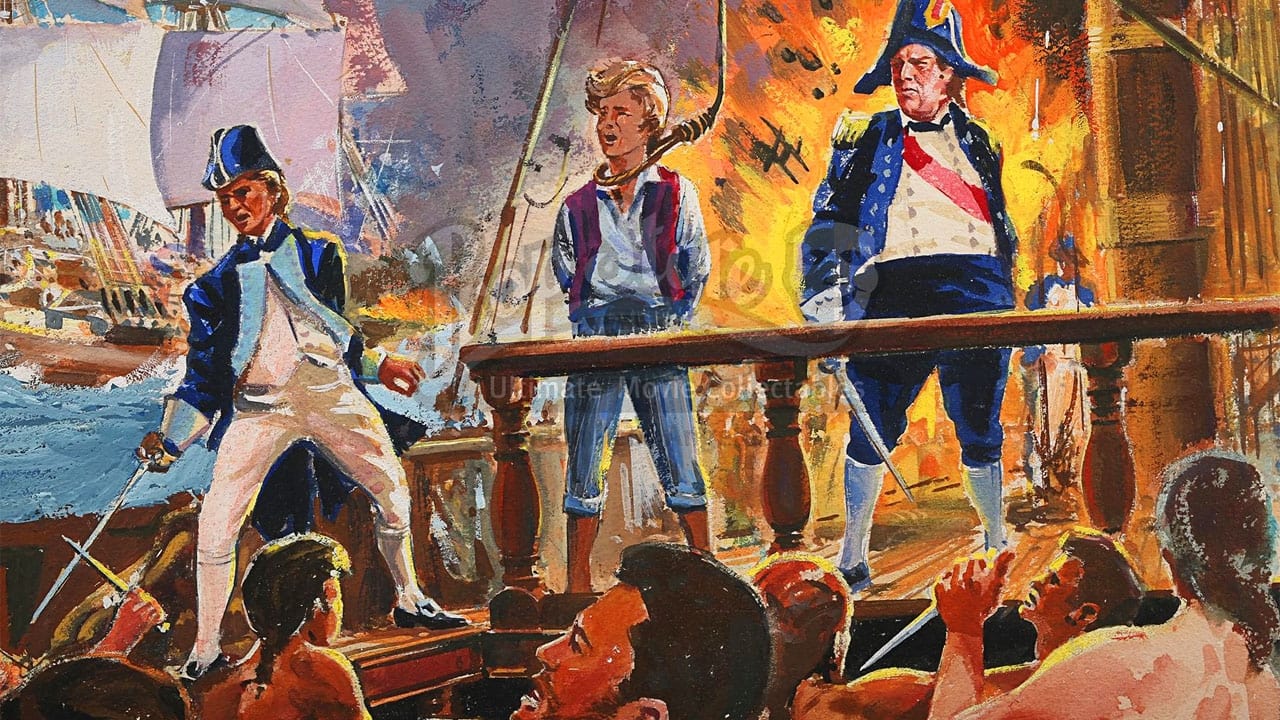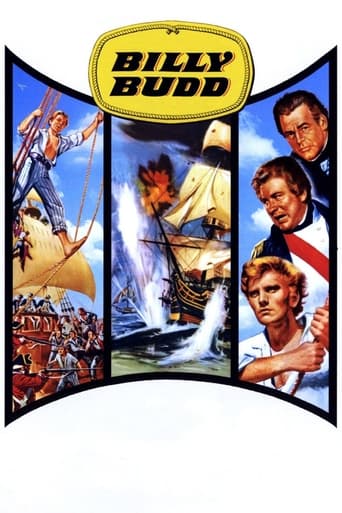

Terrific 1962 film detailing justice, morality and devotion to the law.Robert Ryan is fabulous as the Master-of-Arms, cruel at every step, who believes that flogging is the answer to everything. He is the very answer to Captain Bligh on "Mutiny on the Bounty."Naive Billy, played by supporting Oscar nominee Terence Stamp, conveys the simplicity, and the man who was unfortunate enough to be subjected to military standards.Peter Ustinov is terrific here as the head who sees no way out to free Budd, despite the fact that what he did could easily be justified. The law was the law and it had to be enforced.Melvyn Douglas proves that wisdom comes through age by learning by experience.Finally, the crew, ready to rebel immediately sees that duty comes first when at war.This was truly an absorbing film.
... View MoreI enjoyed this classic story about victimization and "going by the book." Sure, Billy was guilty but he was disabled by a stuttering problem. And just the way we don't execute people today because they may be mentally handicapped, he shouldn't have gotten a noose around his neck. The ship captain was more concerned about how he would be viewed -- and perhaps saving his own hide -- than about doing the right thing. And Billy understood and even forgave this tragic decision.I was reminded of another great story by Melville as I watched this film, "Bartleby the Scrivener," who wouldn't conform to expectations and paid the price when he said, "I prefer not to." As the wise old sail maker said, Claggart murdered Billy the moment Billy killed him. Yet there was something self-sacrificing about the young and lovable seaman. Somehow he put himself out there as a sacrificial lamb -- perhaps by demonstrating the grace that had eluded the loathsome Claggart.Like Christ, Billy died for others' sins.In all, a troubling and compelling movie.
... View More"When is justice compatible with speed?"Asked of the Captain in the aftermath of Claggart's death, this is one of the transcendent questions of the story - and one of any legal system.From the compact novel of the same name by Herman Melville, this adaptation by co-star Peter Ustinov - who also directed - is a marvel.Production value is excellent throughout, in particular, cinematography and set direction.The performances are completely idiomatic and uniformly superb. Special mention go to Terence Stamp, of course, as Billy Budd, who emotes genuine innocence and perfect trust - and Robert Ryan, who is thoroughly despicable as the sadistic Claggart, the lone vestige of humanity that flickers once through his tortured soul brilliantly executed. Melvyn Douglas wears the tragedy and weariness of the world on his face with a tear-stained countenance, and speaks it movingly with eloquence."We do not deal with justice, but with law," says the Captain, and Billy's fate is sealed. After the sentence is carried out, he laments in anguish, "I am not fit to do the work of God... or the Devil." But, then, who amongst us is?
... View MoreA classic. Herman Melville's short novel comes to life in distinguished black and white cinematography. Peter Ustinov directs, co-writes, produces and stars in this stirring tale of might verses right on a British warship in 1797. Ustinov plays Captain Vere with Robert Ryan as his Master d'Arms John Claggart. Terence Stamp makes his debut as the young Billy Budd, an uneducated naive seaman forced to serve in the British Navy during the war against the French. The innocent Budd is easily liked by the experienced crew; and a mutiny almost erupts when the charming Billy is tried for murder. Well directed and acted. Powerful original music by Antony Hopkins. The very strong supporting cast includes: Melvyn Douglas, John Neville, Paul Rogers, Victor Brooks, John Meillon and David McCallum. Too good to miss.
... View More